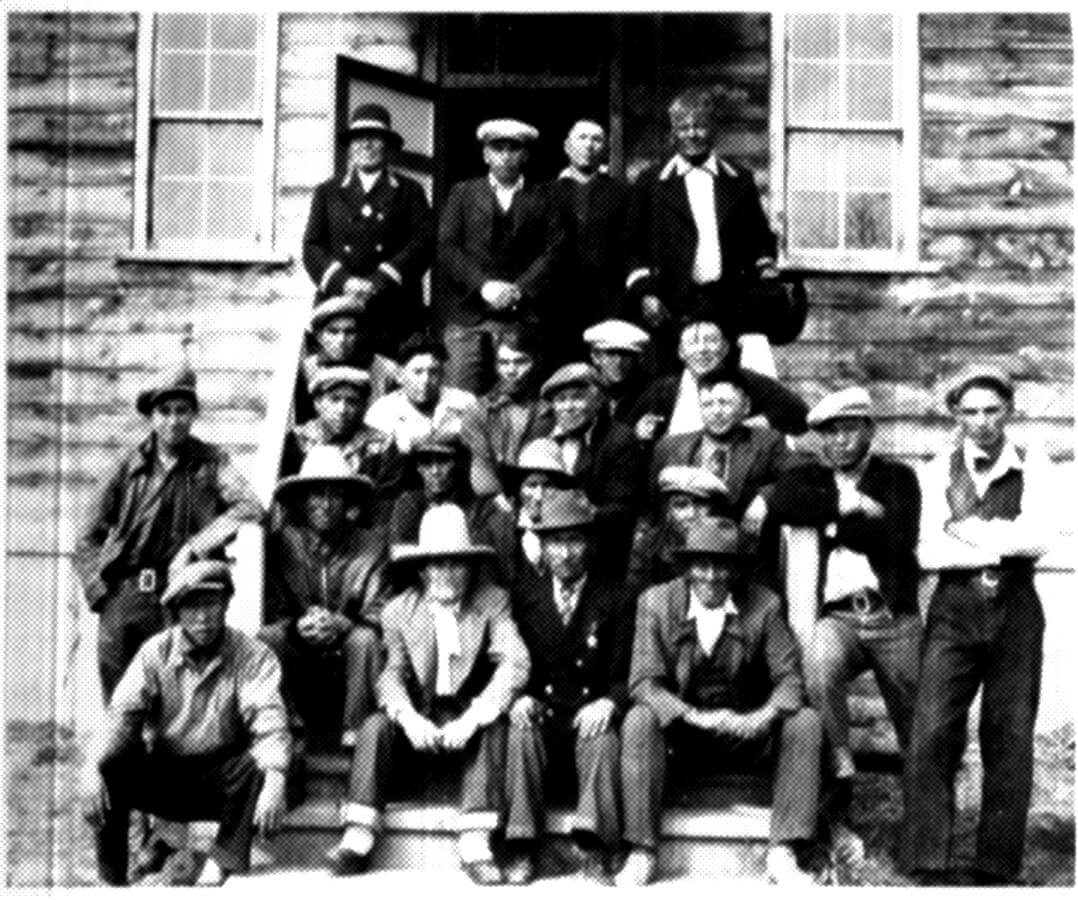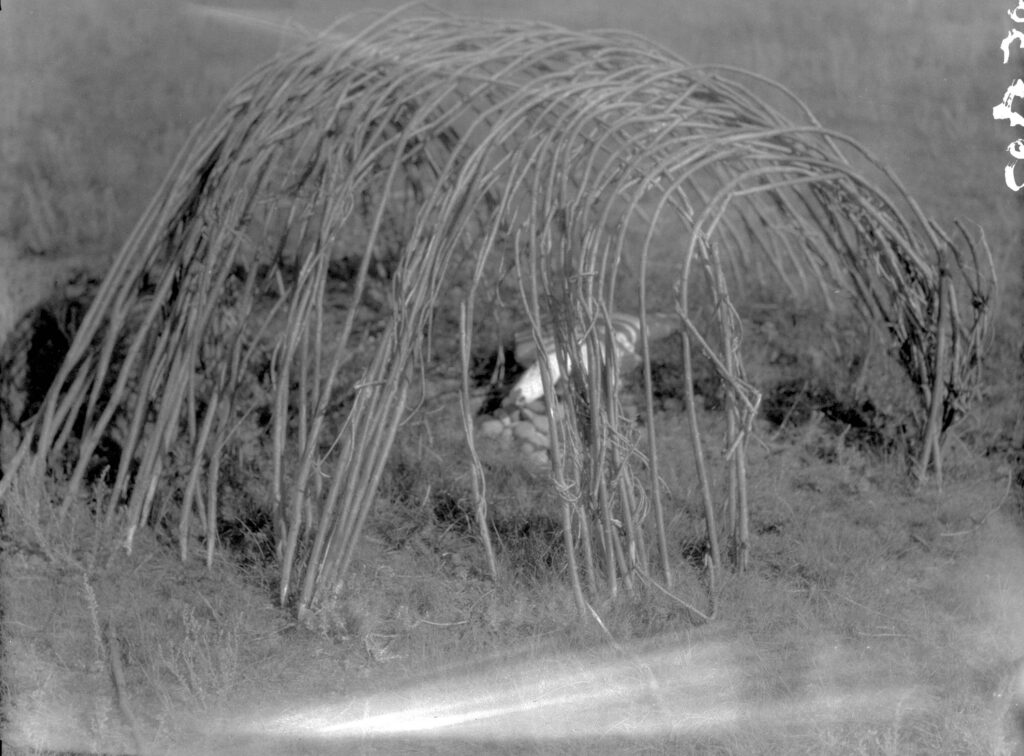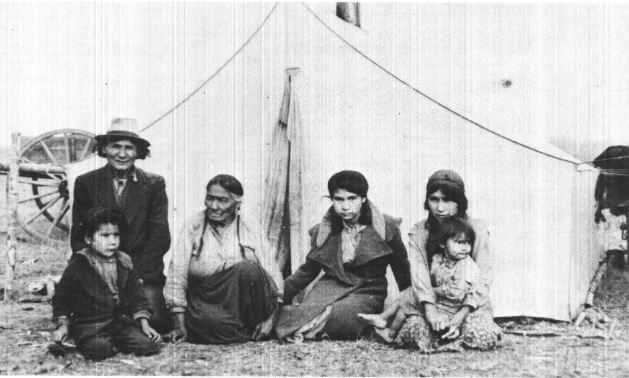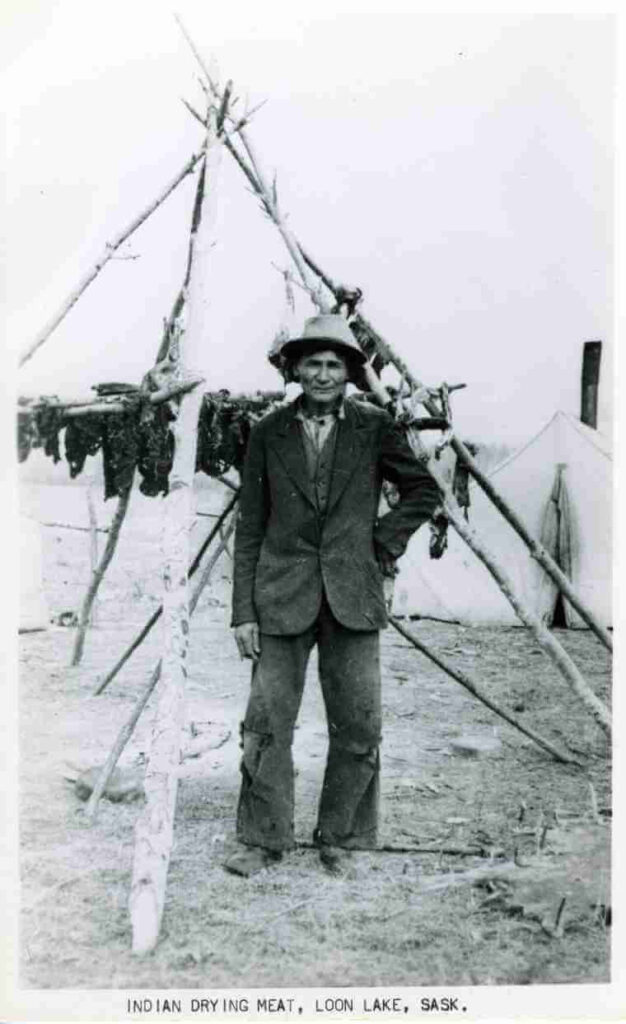We Were Always Here

Makwa Sahgaiehcan Chief & Council, Chief Ratfoot, Top Left. Photo by Hinchsliff.
Cree peoples are sovereign.
We’ve always been sovereign.
We have our own culture, traditions, and laws.
As sovereign peoples, we should have authority and control over:
- Who belongs to our Nation,
- How we govern ourselves,
- How our leaders are selected or changed,
- Our justice system,
- How our lands and resources are used and protected,
- Our health and wellness,
- Our culture, knowledge and language, and,
- the protection of our children.
Our way of life is guided by our Cree laws. They are based on our responsibilities to each other and to the land. Our laws guide how we should act with respect.
- We understand all of creation is connected.
- We work with the land, rather than against the land.
- When we take something from the land, we give something in return.
- We respect the animals and plants which we depend on and only take what we need.
The Cree world is one where the spiritual and physical world exist side by side. Our ceremonies and our lodges helped guide us through the seasons. The Horse Dance, the Ghost Dance, the Chicken Dance and the Sundance.

Sweat Lodge, Waterhen Area, 1930
The knowledge around ceremonies is passed down from generation to generation, from mother to daughter, from father to son.
There are many separate but interconnected Cree communities. Moniyaw call us Woods Cree, Plains Cree, Rocky Cree and Swampy Cree. But we know who we are.
For thousands of years, Cree peoples moved freely. We moved from the prairies into the bush and back. We travelled from Hudson Bay to the Rocky Mountains and beyond. We would travel together, while sometimes families travelled by themselves. We moved and lived with the seasons.

Unknown Makwa Sahgaiehcan Family. Photo by Hinchsliff.
Cree life centered around the land and the seasons. We harvested throughout our territories to sustain our culture and way of life. There were no boundaries, no trespassing, no fences. We followed and harvested the land for food, clothing and shelter, according to the seasons. We moved throughout the forest, harvesting wildlife and fish. Water and medicines were plentiful, as were moose and deer. We would harvest in the summer, preserve our food and get ready for the winter.
We only took what we needed from the land. When we did harvest, we gave thanks for the plants and animals for providing for us.
Men and women were both expert harvesters. Their expertise was passed down on the land, by watching and doing.

Unknown Makwa Sahgaiehcan Man, 1940.
Elders would tell us stories about where we came from, and about our history. We would listen to them around the fire. The stories the Elders told us were to both educate us and make us happy.
Children are sacred gifts from Creator, and everyone was responsible for their physical, spiritual, emotional and mental well-being. Children were cherished, and Elders were respected.
